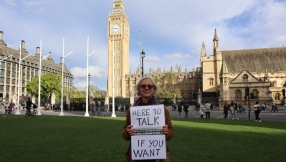Church of England schools are misleading parents and failing to be inclusive in their admissions, according to a new report launched today.
There is a 'discrepency' between the CofE's education officials who say Church schools are 'serving the needs of the local community' and the admissions policies which often allow for selection on the basis of faith, a deeply critical report by the Fair Admissions Campaign and the Accord Coalition claimed.

Described as a 'depressing but not unexpected picture', the research attacks the Church for failing to insist on a ban on schools selecting according to religion.
In a strongly worded statement the Revd Stephen Terry, a schools campaigner and part of the Accord Coalition, called for an end to a 'ghetto mentality' in schools admissions. He said CofE schools must be 'prepared to engage in meaningful learning, debate, discussion and argument with those who see things differently. This has little chance of happening whilst the current discriminatory admission procedures are in place.'
Rabbi Dr Jonathan Romain, chair of the Accord Coalition, said: 'Most people in Britain - including a majority of people of faith - do not want state funded schools to religiously select or divide pupils. Church of England officials appear to be responding to these widespread concerns by stressing the inclusivity of their schools, but in most instances they are not telling their schools to be more inclusive. The Church should practice what it preaches.
'This mis-match between words and reality is misleading, encourages social segregation and undermines the position of those in the Church wanting CofE schools to be non-discriminatory. We urge Church authorities to guide their schools on a path away from division, towards greater inclusivity'.
Current laws allow over-subscribed free schools to select up to half its pupils on the basis of religion but they must allocate 50 per cent of places not according to faith.
But more than half of Church schools are controlled by the local authority, who set the admissions policies, not the CofE. The remaining 'voluntary aided' schools and academies set their own admissions at a local level and are not dictated by the Church.
The research in the 'Mixed Signals' report claimed that 35 out of 40 dioceses studied do not advise schools to refrain from using religiously selective admissions criteria and 10 dioceses (25%) actively recommend — along with the most recent national Church admissions guidance — that schools engage in some religious selection.
But officials hit back at the research, saying it was important that admissions policies were set locally, not by the central Church. They added they did not recognise the claims of the research which was based on a tiny proportion of Church schools.
Nigel Genders, chief education officer for the CofE, said: 'The findings of the Accord's research do not provide an accurate picture of admissions to or the diverse make-up of Church schools. We do not recognise their description of the admissions landscape or the conclusions of the report.'
He added that 60 per cent of Church schools have no religious affiliation admissions criteria and said those that do are in areas with high competition for places.
'Often providing places purely on distance from the school would mean that only the wealthiest, who can afford to move house nearby, can access the best schools,' he said.









